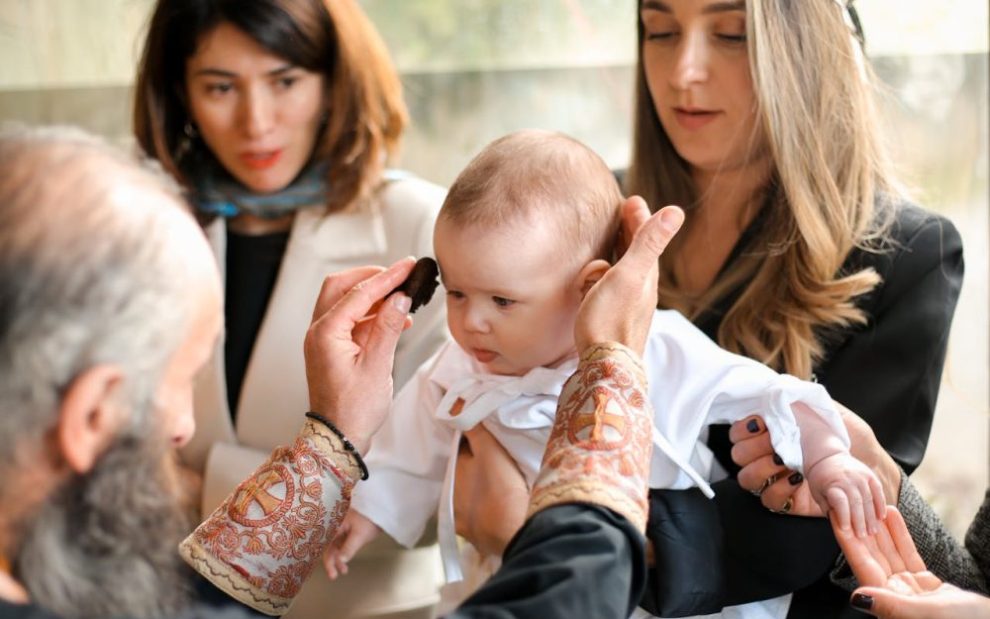One curious restriction on who can serve as a godparent is that two persons of the same sex may not serve together.
This wasn’t always a mandate. History is stuffed with counterexamples. Henry VIII’s first child to survive infancy, Mary Tudor, had at least three baptismal godparents, two of whom were women. Even today, some ministers, perhaps unaware of the canon, allow for more than one godparent of the same sex. When it happens, it doesn’t affect the validity of the sacrament. The law may simply be intended to thin the herd gathered around the font.
Parents may run into canonical quagmires when trying to find suitable godparents for their children. Godparents aren’t strictly required for baptism, but the church encourages having at least one, and the tradition is important in many families—which can lead to friction over who may serve. Sometimes a proposed godparent may meet the parents’ expectations but be vetoed by a minister.
Canon law requires that parents or the minister of the sacrament designate a godparent, who must then be capable of understanding the responsibility they’re undertaking. Sixteen is the usual minimum age, although a bishop can set another age and grant exceptions. Sponsors ordinarily must be fully initiated in the Catholic faith themselves and have celebrated baptism, first communion, and confirmation. The sponsors should be practicing the faith and can’t be under a canonical penalty (such as excommunication). Parents aren’t allowed to be godparents to their children.
According to the Directory for the Application of Principles and Norms on Ecumenism, an Orthodox Christian may be a godparent along with a Catholic godparent, so long as the candidate is educated as a Catholic. Protestant Christians “may be admitted as a witness to the baptism, but only together with a Catholic godparent.” Catholics may serve as godparents for Orthodox Christians (with the understanding that the child’s Orthodox godparent takes responsibility for their spiritual education). In Protestant baptisms, Catholics may attend as witnesses.
“Christian witnesses” is a bit of ecumenical pablum. No duties are attached to baptismal witnesses, either during the liturgy or as the child matures. This makes it easier for Catholics to navigate potential controversy. It might also provide a way to licitly skirt around the rule prohibiting two godparents of the same sex.
If the person the parent wants as a godparent can’t attend the baptism, another Catholic may act as proxy. The proxy witnesses the baptism on the godparent’s behalf, but the designated godparent is the one who acts as godparent to the child.
What happens if a godparent falls out of parental favor as the years go by? Can a godparent be “fired” and a new godparent selected? No, unfortunately, because a baptism cannot be redone. Instead, children or families may want to choose another appropriate mentor in the faith as a confirmation sponsor.
This article also appears in the May 2025 issue of U.S. Catholic (Vol. 90, No. 5, page 49). Click here to subscribe to the magazine.
Image: Pexels














Add comment